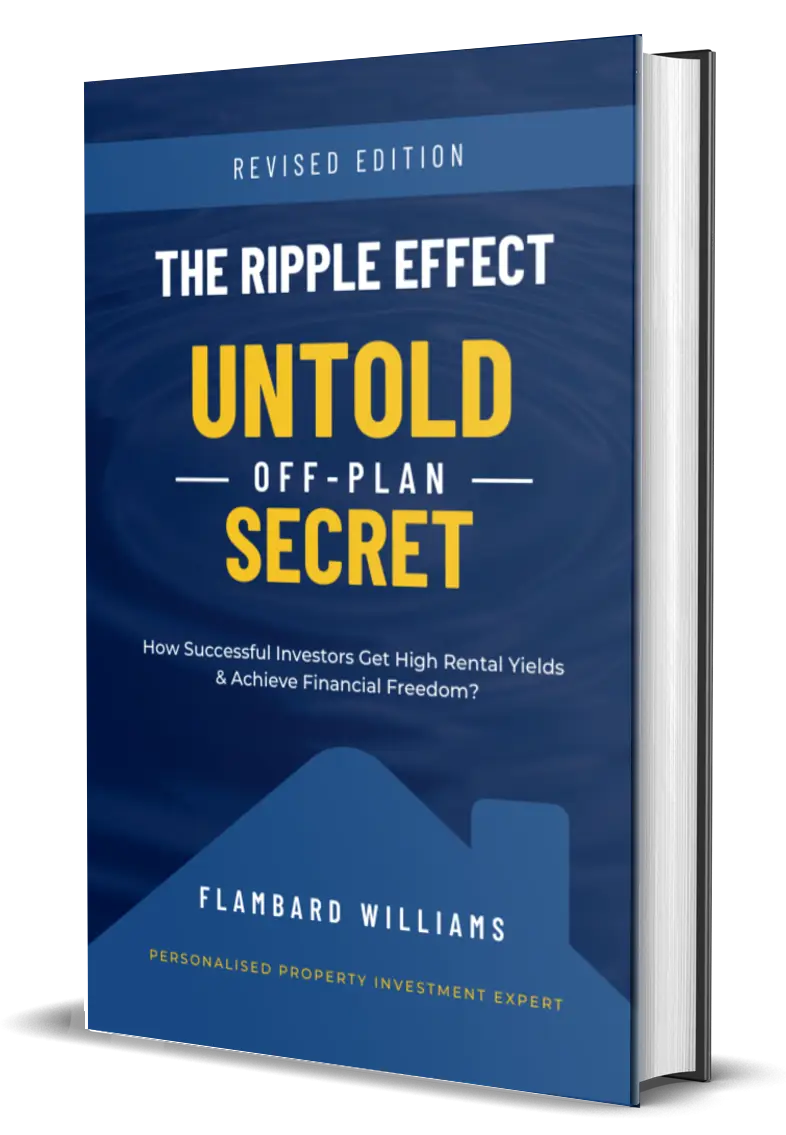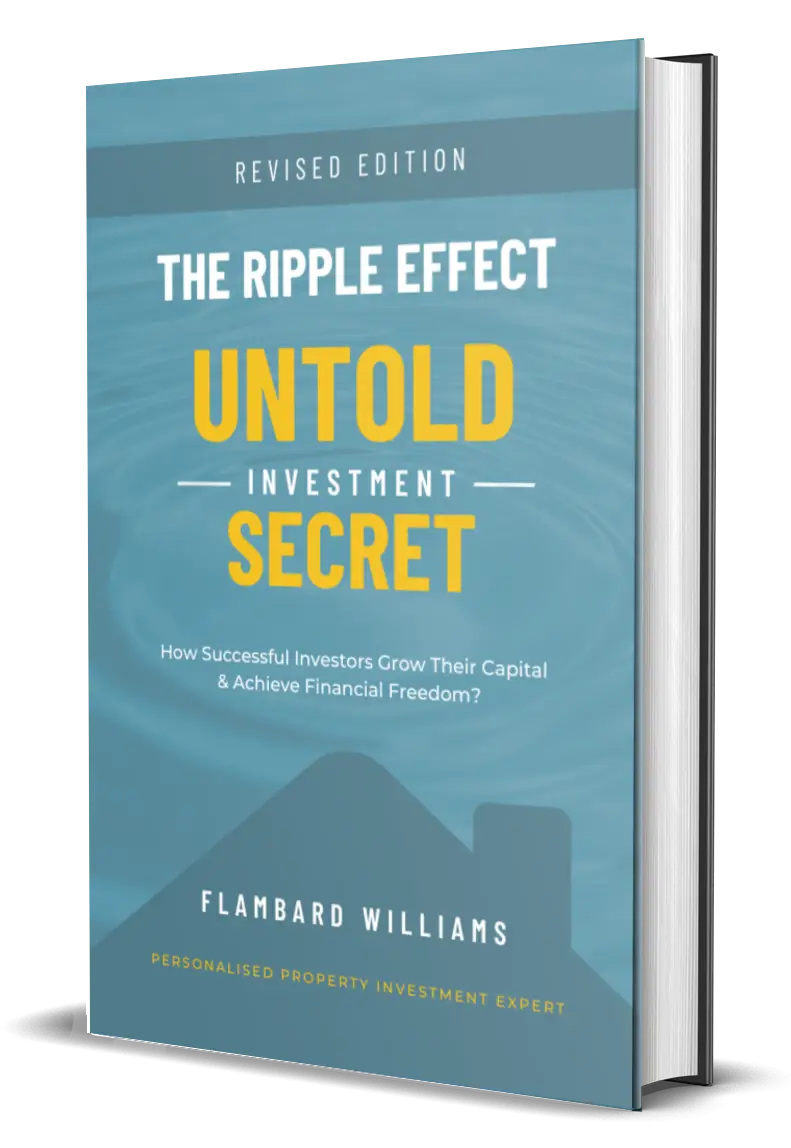House Prices in Birmingham
Download your FREE GUIDE to learn how to turn a £50,000 investment into £1,000,000!
Fill in the form below to download your free guide and explore exclusive off-market investment properties in the UK.
The current landscape of Birmingham’s property market
As the second-largest city in the UK, Birmingham continues to be a hub of investment opportunities, offering a diverse range of property types and a dynamic rental market. Here, we present the latest insights and trends, giving you a clear picture of Birmingham’s property market
Birmingham’s average house price
As of June 2024, the average property price in Birmingham stood at £232,000, reflecting a modest 0.3% annual increase. While the growth is slight, it signals a stable and balanced market—ideal for investors seeking long-term capital appreciation.
For first-time buyers, the average price is around £204,000, unchanged from last year. That’s fairly reasonable compared to other cities, offering a bit of breathing room for new investors.
Considering buy-to-let? Birmingham remains a solid choice. The average price for mortgage-backed investment properties is around £239,000, showing minimal change and market stability. Cash buyers benefit even more, with an average price of £214,000—saving a decent amount by avoiding mortgage costs and boosting investment potential.
Fill in the Form below to see ALL Exclusive Off-Market Properties
Property Type Impact on House Price Variations in Birmingham
Birmingham offers diverse property options to suit different budgets and investment goals.
Detached houses average £435,000—ideal for families or long-term capital growth. Semi-detached homes sit around £266,000, offering a balance of space and affordability, especially in family-friendly areas near the city.
Terraced houses, averaging £212,000, are a great entry point for first-time or buy-to-let investors, thanks to strong rental demand. Flats and maisonettes, at around £157,000, provide the most affordable entry, particularly popular in the city centre for those seeking compact, high-demand rentals.
Whether you’re buying your first home or investing, Birmingham has something for everyone.
Yearly Trends in Birmingham House Prices
It’s all about timing—knowing when the market’s rising or spotting a small dip that could work in your favour. Birmingham is a great example of a city that’s evolved dramatically over the past decade. Not just in terms of property prices, but also in how it’s grown and attracted more people. The average price paid by investors in Birmingham still offers a competitive entry point compared to other UK cities.
Let’s rewind to 2011. Back then, the average house price in Birmingham was around £133,496. Not bad. But the market was still recovering from the 2008 financial crash, and in 2012, prices dipped slightly—by about 2.1%. Still, Birmingham has a habit of bouncing back.
From 2013 onwards, prices steadily climbed, typically rising 4–7% annually. This made sense: the city was growing, housing demand increased, and major infrastructure projects—like HS2—began to take shape.
By 2017, things accelerated. Prices jumped over 8%, reaching £167,885. Birmingham wasn’t just about property anymore—it became a business and professional hub, attracting those who might’ve previously looked to London. This influx drove even more demand from buyers and investors alike.
Between 2017 and 2019, growth remained strong, especially in the city centre. With better transport links and ongoing development, Birmingham became even more attractive to both companies and residents. If you’d invested during this period, chances are you’d have seen solid capital growth.
Smithfield House
.
Property Price
Rent per month
Rental Yield
Private Rental Prices Continue to Climb in Birmingham
Annual Trends in Birmingham Rental Prices
In July 2024, average private rents in Birmingham hit £1,003 per month—an 11.4% jump from £901 in July 2023. This rise outpaced both the West Midlands (£811 to £884) and the national average (£1,178 to £1,279), highlighting Birmingham’s strong rental demand.
The surge is driven by job seekers, students, and renters priced out of buying—making Birmingham’s rental market hotter than ever. With excellent transport links, a thriving job market, and a growing cultural scene, the city continues to attract new residents.
Why Investors Should Take Note
Birmingham offers strong ROI potential, especially in high-demand areas like Edgbaston and Moseley. While no investment is without risk, Birmingham stands out as a more accessible and promising alternative to London, with rising rents and robust tenant demand.
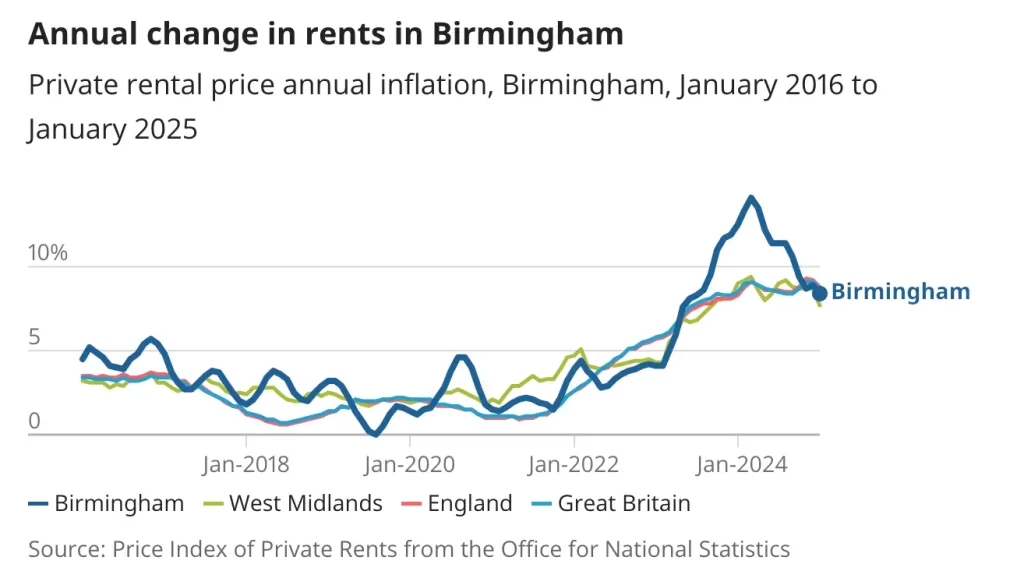
Source: Office for National Statistics
Birmingham’s Average Rent Compared with the Wider West Midlands
Let us analyse the rental prices in Birmingham compared to the wider West Midlands. It is clear that Birmingham is seeing some significant growth. Flats and maisonettes have really shot up, with rents rising by 11.6%. This shows just how popular these types of properties have become. Likely because they’re often a more affordable option for young professionals and smaller households.
Detached houses in Birmingham are not far behind. Their rental prices going up by 11%. And if we are talking about one-bedroom homes, they’ve seen the biggest jump of all. Their rents increased by 11.9%. This points to a big demand for smaller, more budget-friendly homes. Especially as living costs continue to rise.
Even larger homes, like four-bedrooms, have seen a solid 10% rise in rent. This shows that even at the higher end, demand is steady, making Birmingham a hot spot for investors. Compared to the broader West Midlands, Birmingham really stands out as a place where rental yields are attractive across the board – whether you’re looking at smaller houses or bigger family homes.
BUY 1 PROPERTY, GET 1 FREE !
Double Your Investment Instantly

Detached properties
Semi-detached properties
Terraced properties
Flats and maisonettes
Rental Price Changes by Property Size in Birmingham
Breaking down the data further according to the number of bedrooms, Birmingham’s rental prices still, show consistently high growth across all segments:
- One bedroom: £752
- Two bedrooms: £913
- Three bedrooms: £1,028
- Four or more bedrooms: £1,465
The increase in rental values across different types of properties really highlights the strong demand in Birmingham’s rental market. Semi-detached and terraced houses, in particular, offer fantastic opportunities for investors wanting to take advantage of this trend. Property experts have seen how these properties are performing well in different parts of the UK. Whether you’re exploring Birmingham’s suburbs or eyeing the bustling centre, there are plenty of promising options to consider.
First-time Investors in Birmingham
Among first time investors the popularity of purchasing homes in Birmingham remains stable. In June 2024, the average price for first time investors was £204,000. This is paradoxically not much different from June 2023.
Compared to the other regions, Birmingham still appears to be quite a reasonable place to go for the property ladder. Also, it is not only about the prices; the city has the scope of property appreciation as well so it suits the investors and the people who want to stay for several years as well. The properties sold prices in Birmingham vary by area and property type, making it accessible for a wide range of budgets.
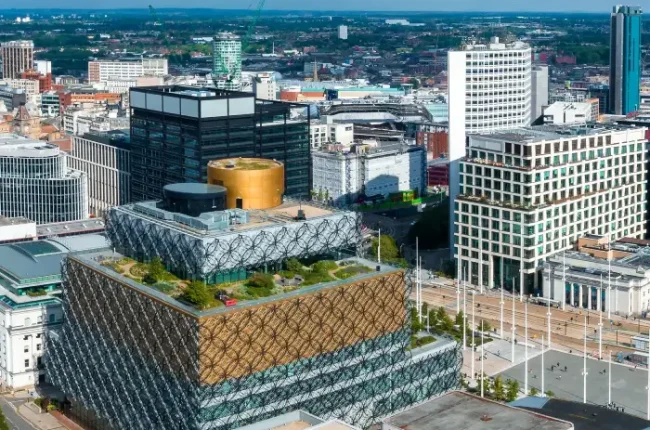
First-Time Investors Prices in Birmingham vs the West Midlands
One thing to note is that Birmingham’s property market is a bit kinder to first-time investors compared to the rest of the West Midlands and Great Britain. While first-timers in Birmingham paid £204,000 on average, home-movers shelled out a bit more. It is around £265,000. That’s slightly lower than last year’s figure of £267,000. In the wider West Midlands, though, prices were higher at £289,000. And across Great Britain, the average was a heftier £333,000. So, Birmingham still offers a good deal compared to surrounding areas!
Discover your property’s earning potential with our Buy-to-Let Calculator.
A Breakdown of House Prices Across Birmingham
Birmingham got a bit of everything, whether you are looking for something high-end or more budget-friendly. There are neighborhoods that cater to just about anyone. Each area has its own personality when it comes to house prices. To help you figure out where to invest, we will break down the property prices in a few key areas of the city. Birmingham’s property values fluctuate significantly by postcode area, offering options for investors and homebuyers alike.
Harborne
Harborne’s that perfect blend of suburban peace and urban convenience. It is one of those places that people love for its high street, great schools, and how easy it is to pop into the city centre. No wonder it is a favourite for both families and professionals. When it comes to property, you are looking at around £250,000 for a terraced house. But if you are after something bigger like a semi-detached or detached, prices can go well over £500,000. Harborne’s popularity isn’t fading anytime soon, so it is a safe bet if you are thinking long-term, both for rentals and property value.Jewellery Quarter
What was once mainly an area of historic workshops is now one of the trendiest spots in Birmingham. Young professionals are flocking here, drawn in by the cool shops, buzzing restaurants, and sense of community. You can still find one-bedroom apartments starting at £150,000. While larger apartments can set you back up to £400,000.Sutton Coldfield
Sutton Coldfield is for those who want something a bit more prestigious and green. With its large detached homes and proximity to Sutton Park it is a popular choice for families. Especially those who want space without being too far from the city. Property prices here average around £335,000. Though detached homes tend to be much pricier, closer to £644,000. While the area has seen a slight dip in prices recently, Sutton Coldfield remains a strong option for those looking to invest in long-term growth and solid rental returns.Digbeth
Digbeth is the cool, creative corner of Birmingham. It’s been undergoing regeneration and is now a favourite among young professionals, artists, and investors. Apartments here average around £180,000, with houses going for a bit more, up to £220,000. While prices dipped slightly not too long ago, the area’s artistic vibe and its proximity to the city centre suggest it’s got real potential for growth. If you’re looking for buy-to-let opportunities, Digbeth could be a great spot to explore.Erdington
Erdington is a great place to start. Especially for first-time property investors. Property prices here hover around £160,000. This price is pretty reasonable compared to other parts of the city. With the proximity to Birmingham’s centre and steady rental demand, it is a solid choice for buy-to-let. Rental yields here tend to be reliable, so you can count on a steady return.Perry Barr
Perry Barr has been getting a lot of buzz lately. All thanks to the investments made for the Commonwealth Games. The average home price is around £190,000. With a mix of semi-detached houses, terraced homes, and flats, it is appealing to every investor.Selly Oak
Selly Oak is a bit of a student hub. The place has close ties to the University of Birmingham. And where there are students, there has rental demand. Property prices in the area are fairly reasonable, averaging around £180,000. That makes it a great entry point for those looking to tap into the Birmingham rental market. The demand for student housing is constant. This means you can expect a reliable rental income here. If you are thinking long-term, Selly Oak’s steady market could be just what you are after.Eastside
With the upcoming HS2 Curzon Street Station, the place is poised to become one of Birmingham’s next big property hotspots. Here the house prices sit around £200,000. But the forecast looks promising with infrastructure improvements likely pushing that number higher in the coming years.Investing in Birmingham City Centre property is proving wise, with average prices reaching £240,535 last year per Rightmove, and the upward trend continuing. A supply-demand imbalance, driven by high demand for homes, boosts property appreciation and rental yields. As a vibrant UK city, Birmingham offers strong buy-to-let prospects, enhanced by the upcoming HS2 rail, promising further growth in property values amid a thriving business sector and improved transport links.
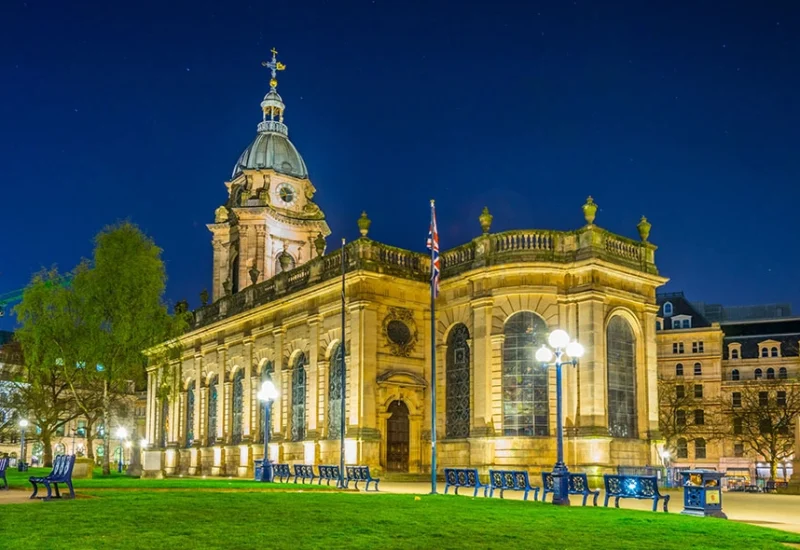
Birmingham’s £27 billion economy hosts major firms like PwC, HSBC, and Goldman Sachs, supporting over 206,000 jobs and attracting professionals with high-paying opportunities. The Birmingham Central Framework 2040 aims to add 74,000 more jobs, signaling further growth. For property investors, this economic expansion drives rising property prices, still affordable with a salary-to-house price ratio of 6.6, offering both value and appreciation potential. Growth in finance, tech, and media boosts housing and rental prices, with premium areas like Sutton Coldfield appealing to upscale buyers.
Birmingham’s property prices are rising due to a housing shortage, with only 8,848 homes under construction against a need for over 7,000 annually to match population growth, creating opportunities for investors. Tight supply in hotspots like the city centre promises strong rental yields and capital gains, fueled by a workforce of 100,000+ professionals and over a million residents driving high rental demand. Popular property types include semi-detached, terraced, and modern detached homes. As talent flows in from cities like London, rental demand and market competition, especially centrally, will persist, making Birmingham a solid long-term investment.
Unlock Financial Freedom with High-Yield Off-Plan Properties
Our experts curate personalised, high-yield property investment opportunities to meet your investment goals.
Forecasting Birmingham House Prices for 2025
Birmingham Property Market in 2025
Being in the know about Birmingham’s property market, we can confidently say the outlook for 2025 is incredibly promising. Despite challenges like the pandemic and cost-of-living squeeze, house prices have steadily climbed—up 66% over the past decade. Demand continues to outstrip supply, and this upward trend shows no sign of slowing. A key driver of this growth is the rise in Birmingham’s professional population. With major firms like Goldman Sachs and HSBC moving in, demand in both the buying and rental markets is booming. Add in the transformative HS2 project, the Big City Plan, and the BBC’s relocation, and the city’s momentum is undeniable. Looking ahead, standout developments like the Octagon (soon to be the tallest building in the city) signal more housing and more investor opportunities. With rising prices and rents, Birmingham is primed to deliver strong returns in the years ahead.
Birmingham Property Prices in 2025
Birmingham is shaping up to be a prime spot for property investment. Over the past decade, property prices have risen faster here than in cities like Leeds and Edinburgh—and that momentum isn’t slowing. JLL predicts nearly 19.9% growth over the next four years, averaging 3.7% annually—the fastest in the UK. This surge offers strong potential for both short- and long-term gains. High demand and limited supply in the city centre are key drivers. If you’re eyeing the buy-to-let market or expanding your portfolio, Birmingham stands out with the right mix of demand, supply constraints, and a growing economy. We’re here to guide you through these promising opportunities. Whether you're after high rental yields or long-term stability, Birmingham is not a city to overlook in 2025 and beyond.
What to Expect from Birmingham’s Rental Market in 2025
As we move towards 2025, Birmingham’s rental market looks set to keep growing. This is because of the rising property prices and a bustling urban population. If you have been watching the trends you might have noticed that the demand for rental properties is consistently outpacing the available supply. It’s especially true for semi-detached and terraced houses, which are still quite popular among renters and investors. The average property price in Birmingham has been creeping up for a while now, which has naturally pushed rental prices higher as well. With an average rental yield hovering around 5.21%, Birmingham is a smart spot for growing your property portfolios. About 43% of Birmingham’s population is between 20 and 35 years old. This is driving even more demand for rental homes. With so many people looking to rent the property values will continue to rise. This makes Birmingham a solid bet for long term investment.
Want to know more about available properties?
Book your free consultation now to get personalised investment plan and exclusive access to off-market properties from our experts!
Frequently Asked Questions
Birmingham is turning into one of the UK’s top spots for property investment, and for good reason. Big projects, like the Commonwealth Games and massive regeneration efforts, are driving property demand. Prices are staying strong, which means there’s a real chance for growth. Plus, with a booming rental market, investors have the opportunity to cash in on both rising prices and solid rental returns. It feels like the perfect moment to get involved before prices climb even higher. The city’s mix of economic growth and lifestyle perks make it a no-brainer for property investors.
When it comes to property prices, Birmingham and Manchester are pretty similar. Both cities are getting a lot of attention thanks to ongoing investments and regeneration, which is drawing in people looking for an alternative to London. You’ve got professionals moving out of the capital for cheaper living costs but not wanting to sacrifice job opportunities. Birmingham still stands out for its value – with competitive property and rental prices – and the potential for good rental yields and future capital appreciation. It’s a win-win for those looking to invest.
If you’re eyeing Birmingham for property investment, Digbeth should definitely be on your radar. It’s often called Birmingham’s Shoreditch, thanks to its buzzing cultural vibe with trendy co-working spaces, and young professional crowd. It’s no surprise property prices here are on the rise. For those looking for a family-friendly area, Moseley is a great choice. It is just 20 minutes from the city centre. The place offers green spaces, good schools, and a real community feel.
Conclusion
The UK’s second-largest city has shown a robust and dynamic housing market. In 2024, the Birmingham property market is stable and has favorable prospects for investors. This is because it has an assortment of property ranges as well as high rental demand potential. The average house price coupled with consistent price appreciation has enabled the market to continue offer long term capital growth options. The city provides a huge growth potential for all the investors. Especially in areas like Birmingham City Centre, Digbeth and Harborne where demand is quite high.
There is also an unprecedented 26.82% rise in house prices attributable to infrastructure developments. This includes HS2, urban regeneration and a greater increase in rental prices. The city provides a huge growth potential for all the investors. Birmingham’s property prices are lower than most other major cities. This makes it appealing to seasoned investors.
Despite fluctuations in sales volumes, Birmingham property prices have continued to rise, with the average price of terraced properties and semi-detached properties steadily increasing, while house prices across the city reflect the growing demand, making the average property price in Birmingham an attractive option for investors looking for solid returns.
Want to start your Birmingham investment journey?
We are just a call away. Reach out to us at @FlambardWilliams.







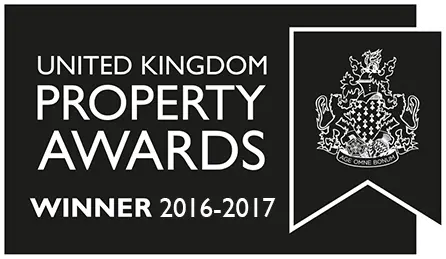
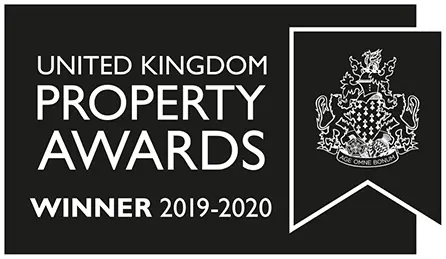
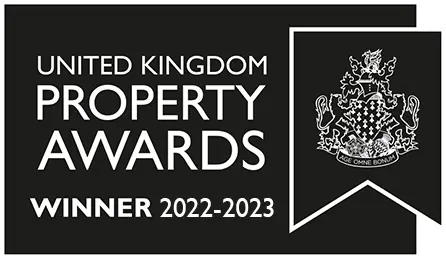
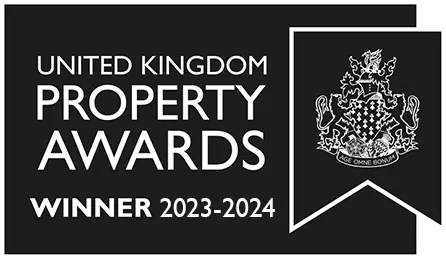





 Exclusive Property Launch Invitations
Exclusive Property Launch Invitations Customised Market Reports
Customised Market Reports Exclusive Access to Off-Market Properties
Exclusive Access to Off-Market Properties Networking Events
Networking Events